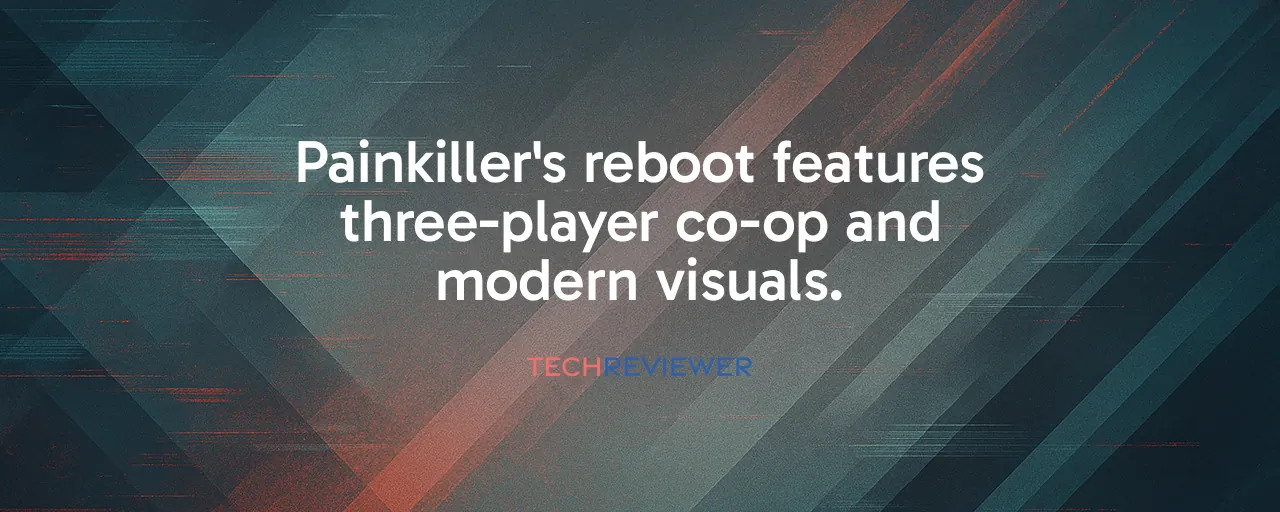Reviving a Cult Classic
The Painkiller franchise, a beloved relic of 2004's shooter scene, is back with a bold reimagining. Developed by Anshar Studios and published by Saber Interactive's 3D Realms, this reboot launches on October 21, 2025, across PC, PlayStation 5, and Xbox Series X|S, following a delay from the originally announced October 9 date. It's not just a nostalgic trip; it's a fresh take on the boomer shooter formula, blending gothic horror with cooperative chaos for up to three players. The timing couldn't be trickier, landing just eleven days after Battlefield 6's debut, but Painkiller's distinct vibe might carve out its own space.
The original game, crafted by People Can Fly, won over players with its relentless pace, wild weapons like the Stakegun, and a Purgatory setting dripping with eerie charm. Fast-forward 21 years, and the reboot aims to recapture that magic while embracing modern hardware. Powered by Unreal Engine 5, it delivers stunning visuals and smooth gameplay, but the real draw is its cooperative focus, a departure from the solo-driven original. This shift taps into today's demand for social gaming experiences, where friends team up to tackle hordes of demonic foes.
Co-Op Combat Redefines the Experience
What sets this reboot apart is its three-player co-op mode, a deliberate choice to balance tight-knit teamwork with chaotic arena combat. Unlike the original's competitive multiplayer, the focus here is on collaboration. Players can choose from four characters, Ink, Void, Sol, and Roch, each with unique stats like health or damage output, adding a light role-playing flavor. The tarot card system, a nod to the original's bonuses, lets players activate temporary boosts, creating synergies that make every fight feel dynamic.
This cooperative approach mirrors the success of Saber Interactive's World War Z, which sold over three million copies by leaning into team-based horde shooting. Painkiller's demo, available during Steam Next Fest from October 13 to 20, 2025, gives players a taste of this synergy, with grappling hooks and fast-paced movement keeping the action fluid. But it's not without risks. Boomer shooter fans often crave solo experiences, and some may find the co-op focus strays too far from the original's roots.
Navigating a Crowded Battlefield
Launching in late October 2025, Painkiller faces a packed shooter market. Battlefield 6, released on October 10, dominates headlines with its massive marketing push from Electronic Arts. Other titles, like Vampire The Masquerade Bloodlines 2 and The Outer Worlds 2, add to the noise, making visibility a challenge for a mid-tier title like Painkiller, priced at $39.99 for the standard edition. Anshar Studios, known for narrative-driven games like Gamedec, lacks the first-person shooter pedigree of bigger studios, which could raise doubts about polish and execution.
Yet, the boomer shooter renaissance offers hope. Titles like Ion Fury proved indie studios can succeed with retro-inspired mechanics, grossing strong sales despite modest budgets. Painkiller's use of Unreal Engine 5 ensures visual fidelity that rivals AAA releases, and its Rogue Angel mode, a roguelike twist with randomized arenas, adds replayability. The trick will be standing out in a market where players are already invested in bigger franchises.
Lessons From the Past, Eyes on the Future
Painkiller's reboot draws lessons from both its own history and other successes. The original's sequels struggled to match its impact, often criticized for uneven quality. Anshar Studios avoids this trap by focusing on modernization, think enhanced lighting, destructible environments, and cross-platform play to keep the player base unified. World War Z's cooperative model showed Saber Interactive knows how to deliver engaging group dynamics, a strength they're leveraging here.
Still, challenges loom. The always-online co-op raises concerns about long-term accessibility if servers shut down, a growing issue in gaming preservation. Some players may also balk at the shift away from the solo purity of boomer shooters. Looking ahead, the deluxe edition's season pass hints at post-launch support, but sustained engagement will depend on delivering compelling content. If Painkiller can balance its nostalgic roots with fresh ideas, it might just spark a new chapter for the franchise.
